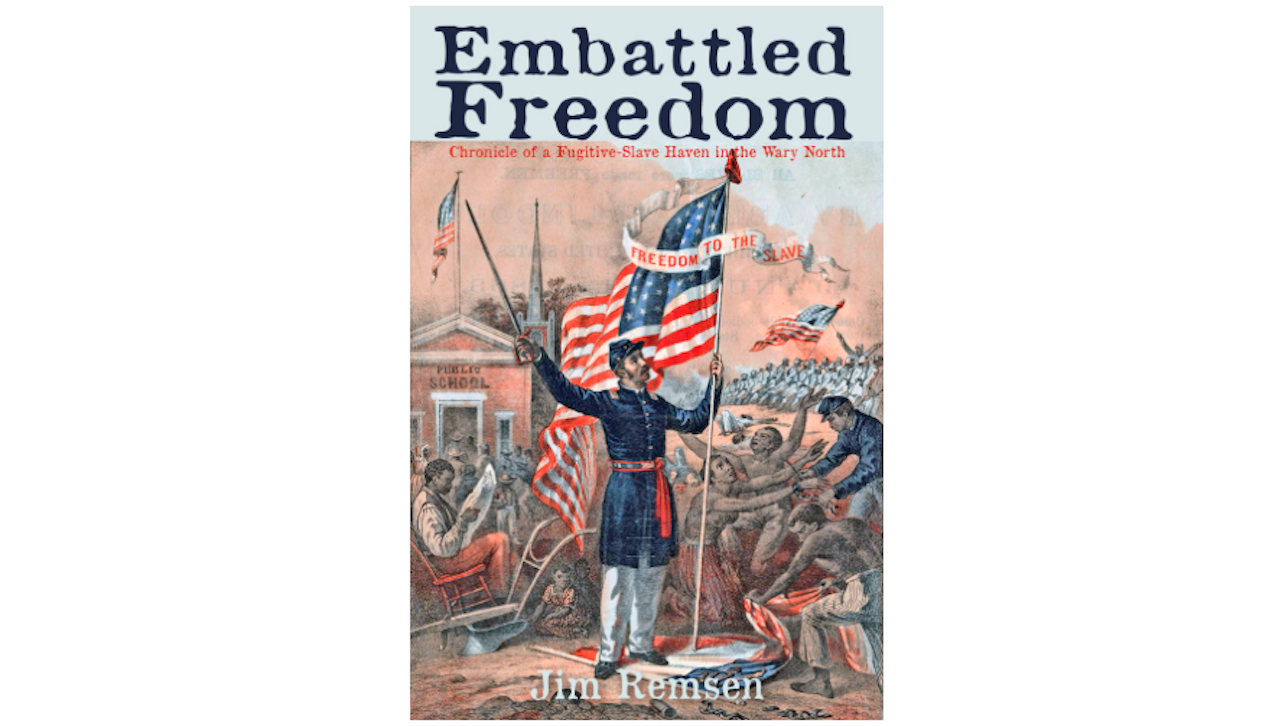Embattled Freedom and the Tale of William Fogg

Jim Remsen, author of the book “Embattled Freedom,” spoke about the local history during the civil war era at The University of Scranton’s Schemel Forum Collaborative Program with the Lackawanna Historical Society. The lecture was held at Weinberg Memorial Library in the fall semester.
Remsen said Waverly was one of the way stations of the Underground Railroad in Pennsylvania.
“The fugitive slaves escaping from the south were helped on their way through,” Remsen said. “As time went on, the support was such that some of the fugitives decided to actually stay, which is remarkable.”
Remsen then discussed the case of black farmer William Fogg, who was born a free man and owned property in what is now Scott Township. In 1835, Fogg tried vote and was rejected at the polls because of his race.
“When Fogg was turned away, he actually got his back up, and he took the bold step of filing a civil suit against the county board of elections,” Remsen said. “He accused them of quote, ‘fraudulently and maliciously intending to injure and damnify him’ end quote.”
Remsen stated the board of elections claimed Fogg was not a citizen because of his race and, therefore, he could not vote. Fogg’s lawyers argued that “free blacks in good standing, like Fogg, were entitled to vote by federal privilege in state elections,” Remsen said.
The case went to county court and the county judge at the time, David Scott, who is the namesake of Scott Township, ruled in favor of Fogg and held the election board liable for damages.
“This is a major case about black people’s rights to do basic things like vote. It was a seminal case and it came to a head right here in our backyard,” Remsen said.
The county appealed and the case went to the state supreme court, which at the time was under state chief justice John Bannister Gibson, who ruled that black people could not vote in Pennsylvania. This would come to change later with the installment of the Fifteenth Amendment in 1870.
“From 1837 to 1870 no black person could vote in Pennsylvania because of this case,” Remsen said. “I don’t know if this pains you, but it is depressing stuff – this whole story – but it’s in our history and we can’t try to deny it.”
A reception and book signing at the Lackawanna Historical Society’s Catlin House followed the lecture.







